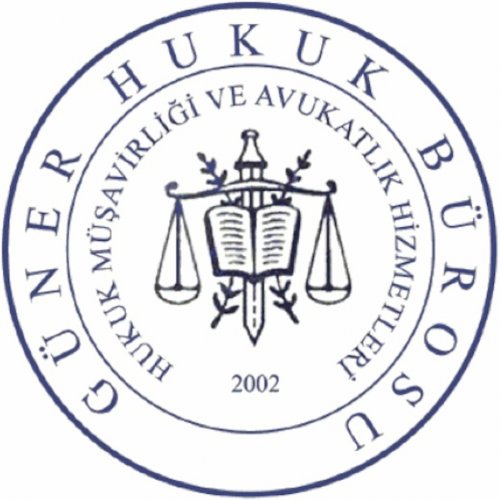Best Energy, Environment & ESG Lawyers in Istanbul
Share your needs with us, get contacted by law firms.
Free. Takes 2 min.
List of the best lawyers in Istanbul, Turkey
About Energy, Environment & ESG Law in Istanbul, Turkey
Energy, Environment, and ESG (Environmental, Social, and Governance) law in Istanbul, Turkey, addresses the legal landscape shaped by rapid urbanization, economic growth, and increasing global standards for sustainability and corporate responsibility. Istanbul, as Turkey’s largest metropolis and main business hub, has become a focal point for national and international energy projects, major infrastructure investments, and environmental concerns. Recent years have seen growing attention to the impact of industrial activities on the environment, the shift towards renewable energy, and the importance of transparent corporate governance under ESG principles. Energy, Environment, and ESG law in Istanbul aims to regulate these sectors, balancing Turkey’s economic needs with environmental protection and responsible business practices.
Why You May Need a Lawyer
There are various situations where individuals or businesses may require legal assistance related to Energy, Environment, or ESG matters in Istanbul:
- Complying with permits and licensing for energy projects, such as power plants or renewable energy installations.
- Facing allegations of environmental harm, pollution, or breaches of environmental standards.
- Participating in government tenders, project finance, or public-private partnerships for energy or infrastructure projects.
- Resolving disputes with regulatory authorities, other businesses, or impacted communities related to environmental regulations.
- Structuring corporate governance frameworks that meet ESG compliance standards required by investors or regulators.
- Conducting environmental due diligence for mergers, acquisitions, or new business ventures.
- Receiving audits or inspections from environmental or energy agencies.
- Adapting internal policies to align with Turkey’s increasing focus on sustainability and social responsibility.
Local Laws Overview
In Istanbul, Energy, Environment, and ESG-related activities are governed by a mixture of national laws, local regulations, and international agreements. Key legislation and regulatory frameworks include:
- Energy Law: Covers electricity generation, transmission, distribution, and natural gas regulation, governed primarily by the Energy Market Regulatory Authority (EPDK) under the Electricity Market Law and Natural Gas Market Law.
- Environmental Law: The Turkish Environmental Law (No. 2872) establishes principles for environmental protection, pollution control, and environmental impact assessments. Supplementary by-laws cover emissions, waste management, water use, and hazardous substances.
- ESG Regulation: While not as advanced as in some jurisdictions, ESG principles are gaining ground, with the Capital Markets Board of Turkey (CMB) introducing guidelines for publicly traded companies. Environmental and social criteria are increasingly linked to access to finance and foreign investment.
- Permit and Licensing: Major energy and infrastructure projects require comprehensive permitting, including environmental impact assessment (ÇED) reports, local municipality approvals, and ministry-level oversight.
- International Conventions: Turkey is party to several international agreements, such as the Paris Agreement, which influence local policy on climate mitigation and sustainability.
Frequently Asked Questions
What types of energy projects are common in Istanbul?
Istanbul hosts a diverse range of energy projects, including natural gas and power plants, electricity transmission infrastructure, expansion of renewable energy sources like solar and wind, as well as energy efficiency and distribution enhancement projects.
What are the main environmental regulations that businesses must comply with in Istanbul?
Businesses must comply with the Turkish Environmental Law, emissions regulations, waste management standards, and often need to complete environmental impact assessment (ÇED) procedures for new projects or industrial expansions.
How does Turkey define ESG, and is it legally binding?
ESG in Turkey refers to Environmental, Social, and Governance criteria that guide responsible business behavior. While ESG reporting is not always mandatory, public companies face increasing requirements under Capital Markets Board guidelines, and these standards are quickly becoming best practices.
Who regulates the energy sector in Istanbul?
The Energy Market Regulatory Authority (EPDK) is responsible for licensing, supervision, and regulation of the energy market, including electricity, natural gas, and renewables.
Is an environmental impact assessment (ÇED) always required for new projects?
Not all projects require a ÇED report, but any large-scale or potentially impactful activity-such as industrial plants, energy production, or waste processing-usually does. The Ministry of Environment, Urbanization, and Climate Change decides which projects need assessment.
What are the penalties for breaching environmental regulations?
Penalties may include fines, mandatory remediation, suspension of business activities, or, in severe cases, closure of facilities. Criminal liability can apply in cases of wilful misconduct or severe damage.
Are renewable energy projects given special incentives in Turkey?
Yes, the Turkish government provides incentives such as feed-in tariffs, tax benefits, and priority grid access to promote investment in solar, wind, hydroelectric, and other renewable energy projects.
How does Istanbul address air and water pollution?
Local and national agencies monitor air and water quality, impose emissions standards, and require permits for discharge and emissions. Regular inspections are carried out, and breaches are penalized.
Can a company be held liable for climate change impact?
Liability for climate change specifically is still developing in Turkish law, but companies can face consequences for non-compliance with emissions regulations or environmental damage, especially as Turkey implements international climate agreements.
What is the role of local municipalities in environmental regulation?
Istanbul’s municipalities handle local enforcement of environmental rules, issue certain permits, monitor noise and waste management, and work with national authorities on urban environmental initiatives.
Additional Resources
Individuals and businesses seeking more guidance on Energy, Environment & ESG in Istanbul can consult the following resources:
- Energy Market Regulatory Authority (EPDK): Main regulator of energy markets and licensing.
- Ministry of Environment, Urbanization, and Climate Change: Oversees environmental protection, impact assessments, and climate policy.
- Capital Markets Board of Turkey (CMB): Publishes guidelines on ESG reporting for public companies.
- Istanbul Metropolitan Municipality (IBB): Local authority involved in environmental management and urban planning initiatives.
- Turkish Industry and Business Association (TÜSİAD): Offers industry-specific ESG recommendations and corporate governance resources.
- Environmental NGOs: Organizations such as TEMA Foundation and WWF Turkey provide reports and advocacy on local environmental issues.
- Legal Bar Associations: Istanbul Bar Association can recommend specialized law firms or lawyers in this field.
Next Steps
If you need legal assistance with an Energy, Environment, or ESG matter in Istanbul, consider the following steps:
- Gather all relevant documentation, such as permits, environmental reports, contracts, or notices from authorities.
- Identify the specific nature of your legal issue, whether it is compliance, dispute resolution, investment planning, or regulatory consultation.
- Consult with a lawyer or law firm specializing in Energy, Environment, or ESG law, ideally with experience in Istanbul and knowledge of local regulations.
- Prepare a list of questions or concerns to ensure a productive initial consultation.
- Follow up on any legal or administrative steps advised by your lawyer, including responding to notices, applying for permits, or implementing compliance measures.
- Consider engaging with regulatory authorities or industry bodies as recommended for up-to-date guidance and potential support.
Legal issues in Energy, Environment, and ESG are often complex and may involve overlapping national and local regulations. Timely legal advice can safeguard your interests and promote sustainable, compliant business operations in Istanbul.
Lawzana helps you find the best lawyers and law firms in Istanbul through a curated and pre-screened list of qualified legal professionals. Our platform offers rankings and detailed profiles of attorneys and law firms, allowing you to compare based on practice areas, including Energy, Environment & ESG, experience, and client feedback.
Each profile includes a description of the firm's areas of practice, client reviews, team members and partners, year of establishment, spoken languages, office locations, contact information, social media presence, and any published articles or resources. Most firms on our platform speak English and are experienced in both local and international legal matters.
Get a quote from top-rated law firms in Istanbul, Turkey — quickly, securely, and without unnecessary hassle.
Disclaimer:
The information provided on this page is for general informational purposes only and does not constitute legal advice. While we strive to ensure the accuracy and relevance of the content, legal information may change over time, and interpretations of the law can vary. You should always consult with a qualified legal professional for advice specific to your situation.
We disclaim all liability for actions taken or not taken based on the content of this page. If you believe any information is incorrect or outdated, please contact us, and we will review and update it where appropriate.
Browse energy, environment & esg law firms by service in Istanbul, Turkey
Istanbul, Turkey Attorneys in related practice areas.
















